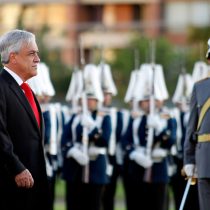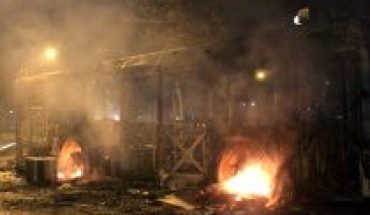
Until a few decades ago, talking about Intelligence in Chile (and in the region) had a negative and even unpopular charge; worse still, it posed an obvious risk of being branded totalitarian and amoral. Nowadays, not talking about Intelligence is synonymous with ignorance and the inability to place oneself in the real world. Indeed, any decision-making process must have the information properly processed to understand the multiple variables that affect the outcome that the adoption of this measure could bring. For some strange reason, that’s as obvious as it is dismissed.
Sherman Kent, considered by many to be the father of modern intelligence, in the middle of the last century defined it as “the kind of knowledge that a state must possess to ensure that its interests will not suffer or its initiatives fail because its political makers or soldiers plan and act under ignorance” (Kent , 1945). It must have been 50 years since the publication of Kent’s famous book, before a law, a State Intelligence System (SIE) and a National Intelligence Agency, the now well-known ANI (Law 19974), were created in Chile.
The law was enacted in 2004 after 3 long years of debate in Congress. Undoubtedly, in the absence of a system and a consensual concept, with all its flaws and imperfections, this has already represented progress. The ANI was the continuation – under a very different conception – of various initiatives that preceded it, such as the famous Directorate of Public Security (DISPI), which operated since 1993 with the task of providing specific information in the field of security, with the purpose that “the Government formulates policies and adopts specific measures and actions, in relation to terrorist conduct and those that may constitute crimes that affect public order or the internal public security” (Law 19212).
By the way, the EES is conceived under a more encompassing logic and covers a larger spectrum. The System has the task of “advising the President of the Republic and the various higher levels of state leadership, with the aim of protecting national sovereignty and preserving the constitutional order, and who, in addition, formulate intelligence assessments useful for the achievement of national objectives” (Law 19974, Article 4). ANI is the executive entity and, in theory at least, preeminent among its peers. Today, a reform of the law to, among other things, strengthen the SIE through an optimization of coordination and, in particular, strengthen the ANI, has been under discussion in Congress for a couple of years.
But all this is frankly insufficient. In Chile, the discussion is still short and revolves around controls (which are very necessary and legitimate) or interagency coordination (essential, by the way). However, he has not managed to penetrate the idea of doing Future Studies, which is certainly far from divination or prophecy. Future Studies are known in some parts as Foresight, which seems to be a conceptual error since, strictly speaking, Foresight is a category within them.
In any case, the purpose of Future Studies is to generate a product known as Strategic Anticipation. This, to put it in simple terms, is the ability to position itself in the future in order to generate greater efficiency in the management of state resources. And it applies not only to security and defense issues, but to the broad spectrum of public policy. Like many disciplines (strategy and logistics, among others), this idea of anticipating is born of war and the use of military forces efficiently to achieve their objectives; hence the idea of Intelligence, which has subsequently moved to a larger context with the name of Strategic Intelligence.
Well, Chile has not yet understood the problem. Unlike many developed (and otherwise successful) countries, in our country the discussion on these matters is still restricted to aspects that, while important, fail to account for the real magnitude of the problem. What Chile needs is to look beyond the 4 years of a government of the day, in order to give public policies stability and continuity.
In some areas it is done, by the way. The FFAA, due to the very nature of their functions and the fact that they have established a procedure for their development plans, have incorporated the look to the future as an essential input prior to their decision-making processes; as it does notIf an efficient military instrument is not improvised, let alone achieved in a couple of years. The Foreign Ministry, for its part, as of 2018 establishes as tasks for the Directorate of Strategic Planning (DIPLANE) “to advise the authorities of the Ministry in the formulation of foreign policy objectives, to design strategic planning, [] carry out and provide specialized studies and reports of foresight” (Law 21080, Art. 15).
And so, in a sectoral, isolated and even assiemic way, the State has some entities dedicated to looking to the future. But, beyond the discourse of good intentions and political correctness, what is the Chile we want for 2050? What place do we want to occupy in the region? What objectives do we have or can we set ourselves over a given time horizon?
Many of our current problems today might not be such (or at least not so serious) if we had been able to visualize and mitigate them a few decades ago. “… the Romans did in these cases what every wise prince must do: not only to worry about the disorders of the present, but also with those of the future, and to avoid them by all means; because when the ills are foreseen in advance it is easy to remedy them, but if you wait until they are close, the medicine no longer has an effect, because the disease has become incurable”, said Niccolò Machiavelli, in “The Prince”.
There are still major discussions to be held and consensus to be reached; but it must be done on a scientific basis. A system that provides Strategic Intelligence is required, but this must work in the context of a larger area capable of doing Future Studies to generate a true and correct Strategic Anticipation.
Jorge Luis Borges is credited with saying that “the future is not what is going to happen, but what we are going to do.” The old deterministic and conformist position of the human being has given way to a proactive and voluntarist attitude: we can build our future. Meanwhile, our country continues to walk with its eyes fixed on the tip of its shoes. Will we end up stumbling? What are we waiting for?
The content of this opinion column is the sole responsibility of its author, and does not necessarily reflect the editorial line or position of El Mostrador.





